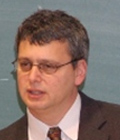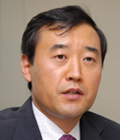Speakers and conference papers

Prof. Hans-Bernd Schäfer (keynote speaker)
Link to Paper
Hans-Bernd Schäfer is affiliate professor for Law and Economics at Bucerius Law School in Hamburg (Germany). He is also professor emeritus of economics at the University of Hamburg, where he was director of the Institute of Law and Economics. He published widely in the field of Law and Economics. His book on the economics of civil law, co-authored with Claus Ott is in its fifth edition and was translated into several languages. He is co-author with Robert Cooter of a book on law and development (Princeton University Press 2012). Schäfer was president of the European Association of Law and Economics, director of the Erasmus Program in Law and Economics (EMLE) and director of the Ph.D. program in law and Economics, funded by the German Research Association. He was awarded the scholar prize of the European as well as the Latin American and Caribbean Association of Law and Economics and is honorary professor of the University San Martin de Porres in Lima. He is an honorary member of the Polish and the German Association of Law and Economics. He lectured on Law and Economics as well as on law and economic development many European, American and Asian universities.
Presentation Title: Law and Development in High-Income Countries
Economic development is the term that has been associated with less developed countries in the Third World, not the economically advanced countries. However, development problems in high income countries are not less important. Changing economic conditions in recent decades caused stagnating wages and widening economic gaps among individual citizens and regions within developed countries. Stagnant economic growth deepening economic polarization and institutional incapacity to deal with these issues can be observed in several rich countries. Private law, public law, and institutions in general play a crucial role in addressing these problems.

Introduction
Professor Lee is a lawyer, economist, and international relations scholar with internationally-recognized authority in law and development and international trade law. He is Director and Professorial Fellow of the Law and Development Institute. He has also taught and conducted academic research at leading universities throughout the United States, Europe, and Asia. He graduated in economics with academic distinction from the University of California at Berkeley and received law degrees from the University of Cambridge (B.A., M.A., Ph.D). Author of Reclaiming Development in the World Trading System (Cambridge University Press, 2nd ed. 2016), Safeguard Measures in World Trade: The Legal Analysis (Edward Elgar, 3rd ed. 2014), Microtrade: A New System of International Trade with Volunteerism Towards Poverty Elimination (co-authored, Routledge, 2013), and Law and Development: Theory and Practice (Routledge, 2019), Professor Lee has published over one hundred scholarly articles, books, chapters and shorter notes with leading publishers in North America, Europe, and Asia, in the areas of international economic law, law and development, comparative law, and international commercial arbitration.
Presentation Title: Law and Economic Development in the United States: Towards a New Paradigm
Economic development is the term that has been associated with less developed countries in the Third World (“developing countries”), not the economically advanced countries (“developed countries”), such as the United States. However, the changing economic conditions in recent decades, such as the widening income gaps among individual citizens and regions within developed countries, stagnant economic growth deepening economic polarization, and an institutional incapacity to deal with these issues, render the concept of economic development relevant to the assessment of the economic problems in developed countries. In the United States, these economic problems caused a significant political consequence such as the unexpected outcome of the presidential election in 2016. This article examines the applicability of the legal and institutional approaches, which were originally adopted to stimulate economic development in successful developing countries, to the economic problems in the United States.

Introduction
Christopher A. Hartwell is Professor of Financial Systems Resilience at Bournemouth University, Professor of International Management at Kozminski University in Poland, Visiting Professor at the Russian Presidential Academy of National Economy and Public Administration (RANEPA), and Fellow and former President of the Center for Social and Economic Research (CASE) in Warsaw. A leading scholar on the evolution of economic institutions. Dr. Hartwell’s interests are in institutional development, especially the interplay between financial institutions and other political and economic institutions. Over his career, Professor Hartwell has published in journals such as Global Strategy Journal, Journal of Economic Behavior & Organization, Explorations in Economic History, Journal of Comparative Economics, Regional Studies, Cambridge Journal of Economics, and Journal of Institutional Economics. Dr. Hartwell holds a PhD in Economics from the Warsaw School of Economics, a Master’s in Public Policy from Harvard, and a BA in Political Science and Economics from the University of Pennsylvania. He is also the author of Two Roads Diverge: The Transition Experience of Poland and Ukraine (Cambridge University Press, 2016) and Institutional Barriers in the Transition to Market: Examining Performance and Divergence in Transition Economies (Palgrave Macmillan, 2013).
Presentation Title: The Rule of Law and Its Social Reception as Determinants of Economic Development. A Comparative Analysis of Germany and Poland
The study aims to explore the connection between the rule of law, especially in terms of its social reception, and the functioning of market economy on the examples of Germany and Poland. The study consists of three parts. In the first, an inventory of the rule of law de jure in the economic context is constructed – a picture of the legal basis of market economy drawn from legislation and literature. In the second step, societal perceptions of the various dimensions of the rule of law are studied by way of standardized surveys and in depth interviews conducted in both countries to determine the de facto state of the rule of law in the economic context. In the third and final step, the effect of the de jure and de facto rule of law on economic outcomes is measured using a multivariate panel analysis. The research innovatively combines two fields of research: 1) new institutional economics, which focuses on the relationship between institutions, such as the rule of law, and economic outcomes; and 2) sociology of law, which deals with the interaction between legal and social norms as well as between the states de jure and de facto of legal norms.

Introduction
Dr. Balmori is the Associate Dean for Undergraduate Studies and Professor in the Business and Economics School at Universidad Anahuac in Mexico City. Dr. Balmori has a Bachelor´s degree in Mathematics and Economics from the University of Texas. He holds a Master´s degree in Policy Analysis and Management from Cornell University, a Master´s in Law from the University of Hamburg in Germany, a Master of Science for Economics Analysis of Law from the Warsaw School of Economics in Poland, and a Ph.D. in Policy Analysis and Management from Cornell University. Dr. Balmori´s research focuses in the areas of Law and Economics, Law and Finance, as well as Law and Development. He has published several articles in prestigious outlets such as the International Review of Law and Economics and Peace Economics, Peace Science and Public Policy. He is a member of the Latin-American Law and Economics Associations and Mexico´s National Research System. He also serves as a consultant for the World Bank and Mexico´s Government Accountability Office. His current research addresses the implementation of the rule-of-law in developing countries, the sustainability of the rule-of-law in emerging and advanced economies, and the development of financial markets in poor countries..
Presentation Title: Are OECD Countries in a Rule of Law Recession?
A recent paper by Diamond proclaims a democratic recession, particularly among high income countries, but also among emerging economies. Moreover, Diamond argues a decline in freedom and the rule of law as consequence of a democratic recession. However, the author only provides an indicator of transparency and the rule of law by Freedom House, without sustaining any real causality or decomposition of the rule of law indicator. This paper examines the trajectory of the rule of law among OECD countries, using objective data from 2004 to 2018 that comes from several sources. To do so, I follow a thin definition of the rule of law, based on the seminal work by Joseph Raz, that separates the political idea of democracy from rule of law outcomes. By going this, I argue that a decline in democracy does not necessarily lead to a fall in the rule of law. This paper also explores reasons for why some OECD countries do experience a decline in rule of law outcomes. I sustain that a fall in the levels of the rule of law does not necessarily have to do with democracy, but rather a wave of populism against judicial institutions or simple bad public policies. The conclusions of the paper indicate that the existence of the rule of law is a necessary condition for economic development and the eradication of poverty among high income countries.

Introduction
Charlotte Ku is Professor of Law and Director of Global Programs at the Texas A&M University School of Law. Prior to that, Dr. Ku was Professor of Law, Assistant Dean for International and Graduate Programs, and Co-Director, Center for Law and Globalization at the University of Illinois. She served as Acting Director of the Lauterpacht Centre for International Law, University of Cambridge and was Executive Director and Executive Vice President of the American Society of International Law from 1994 to 2006. Her research focuses on international law and global governance. She is co-author with William H. Henning, David P. Stewart, and Paul F. Diehl of “Even Some International Law is Local: Implementation of Treaties through Subnational Mechanisms,” Virginia Journal of International Law (January 2020).
Presentation Title: Facilitating Growth & Developing New Markets by Connecting to International Legal Frameworks (co-presentation with Professor Andrew Morriss)
Legal jurisdictions are often seen as constraints to business and development. Yet, globalization has created a complex network of legal systems and interactions with multiple differences, gaps and arbitrage opportunities, which generate business opportunities and market growth. The transformation of offshore regulatory and tax “havens” defined primarily by the absence of particular onshore laws into international financial centers (“IFCs”) where local laws add value to transactions provides insight into the role law and legal institutions play in facilitating growth and development. The economic success of IFCs is a significant development success story, as these jurisdictions have found ways to ‘monetize sovereignty’ and turn themselves into high-income countries.
In our presentation, we will examine the emergence of these financial centers by identifying where and how economic conditions, legal structures – domestic, transnational, and international, and expertise converged to provide opportunities for growth and development. We will conclude with reflections on how legal systems can be used as a development strategy.

Introduction
Andrew Morriss is Dean of the School of Innovation and Vice President for Entrepreneurship and Economic Development at Texas A&M University. He is a professor at the Bush School of Government and Public Service and the School of Law. He received his A.B. from Princeton, his J.D. and M.Pub.Aff. from the University of Texas at Austin, his Ph.D. in Economics from M.I.T., and his M.A. in Educational Psychology from Texas A&M. He previously served as dean of A&M’s law school, Jones Chair at the University of Alabama School of Law, Workman Professor at the University of Illinois College of Law, and Roush Chair at Case Western Reserve University School of Law. His research focuses on the role of international financial centers in the world economy. He is the author or co-author of more than 60 articles, book chapters, and books.
Presentation Title: Facilitating Growth & Developing New Markets by Connecting to International Legal Frameworks (co presentation with Prof. Charlotte Ku)
Legal jurisdictions are often seen as constraints to business and development. Yet, globalization has created a complex network of legal systems and interactions with multiple differences, gaps and arbitrage opportunities, which generate business opportunities and market growth. The transformation of offshore regulatory and tax “havens” defined primarily by the absence of particular onshore laws into international financial centers (“IFCs”) where local laws add value to transactions provides insight into the role law and legal institutions play in facilitating growth and development. The economic success of IFCs is a significant development success story, as these jurisdictions have found ways to ‘monetize sovereignty’ and turn themselves into high-income countries.
In our presentation, we will examine the emergence of these financial centers by identifying where and how economic conditions, legal structures – domestic, transnational, and international, and expertise converged to provide opportunities for growth and development. We will conclude with reflections on how legal systems can be used as a development strategy.

Introduction
Dr. Brian is an international scholar with expertise in international law and global development (more broadly), particular international development law. He is the Director of Postgraduate Law Programme and an Associate at the Centre for Trust, Peace and Social Relations (CTPSR) Coventry University United Kingdom (UK). Brian is also a practicing lawyer. He has taught in Africa and UK and, has conducted research and presented papers in the USA, Europe, Africa, and Asia/Middle East. He was appointed a visiting professor to the EU College of Business Poznan, Poland in 2016.
Presentation Title: Migration, Poverty, The Role of State, Law and Development in the Industrialized Countries of Europe
The current radical approaches or strategies by which there is, on one hand, an increasing European development / external assistance to Africa and Middle East and, on the other hand, border security within Europe as a means to reduce migration from the South may worsen the state of poverty in Europe, particularly on the immigrants and impact on the workforce in Europe with implication on development. While development at the stage where there is still a ‘wide gap’ between the developing poor countries of Africa/Middle East and developed industrialised countries of Europe will often increase migration, at least in the next two-three decades; radical border security in Europe will expose the migrants to human trafficking in different forms and manifestations (forced labour, sex trafficking, removal of organ, domestic servitude, illegal adoption, and servile marriage) contrary to Article 3 UN Protocol on Trafficking in Person. Statistics suggest that by 2050, sub-Saharan Africa for example, will have 800 million new active workforces – this population boom will be full of young, energetic job seekers, and local markets will not be able to absorb and provide meaningful opportunities for all of them. The research argues that there is the likelihood that poverty and human right issues will increase in Europe in the near-future, if the State/EU fails to play their role, by changing their policy direction and repositioning themselves by improving their law and development stance in order to gain the huge mutual benefits from migration. The research examines the role of State and law and development in addressing the issues of poverty and migration within the industrialised countries of Europe. The research employs the human right based theoretical approach, interdisciplinary and critical-analytical perspective within the framework of (international) law and development. It employs qualitative empirical evidence from industrialised / developed countries of Europe and poor developing countries for analysis.

Introduction
Amalie Frese holds a doctoral degree in law from University of Copenhagen, Faculty of law where she was affiliated with Centre of Excellence for International Courts (iCourts) and from Université Paris 1 Panthéon-Sorbonne. In her doctoral thesis Amalie investigated The Court of Justice of the European Union’s and The European Court of Human Right’s decision-making practices in the area of anti-discrimination law. She was a Postdoctoral Researcher at the Faculty of Law, University of Vienna, with The Carlsberg Foundation’s internationalization grant, Junior Core Fellow at the Institute for Advanced Study at Central European University and presently holds the Danish Research Council Internationalization Postdoc at the European University Institute in Florence. Her current research focuses on the legal challenges from economic inequality and poverty.
Presentation Title: A Fundamental Right to Equality of Opportunity in Europe? – Poverty as a Prohibited Ground in the Antidiscrimination Law of the European Court of Human Rights
For the highly influential European Court of Human Rights (ECtHR), a key driver in development of fundamental rights norms in Europe and beyond, social-economic rights generally constitute a sensitive domain where the Court is cautious to not impose obligations on states, which they did not commit to. Nonetheless, due to both the wording of the European Convention of Human Rights (ECHR) and the character of the cases brought to the European Court of Human Rights (ECtHR), its case law does involve social rights, often related to questions of equal treatment and antidiscrimination in regards to right to property (Protocol 1-1).
I explore how and to what extent the ECtHR has developed the norms of discrimination on the grounds of specifically ‘social origin’ in the open-ended discrimination prohibition in Art. 14 ECHR, as protection against arbitrary differential treatment on the basis of socio-economic status or poverty. While Art. 14 and the spirit of the Convention emphasizes equality as central to democracy and enjoyment of fundamental rights, social class as a prohibited discrimination ground is rarely seen as part of this equation. Hence, it is unclear to which extent, and in which way, this agenda-setting Court operates with a notion of discrimination on the ground of ‘social origin’, i.e. lack of financial means and socio-economic status.

Introduction
Elizabeth Bakibinga-Gaswaga, currently a Legal Adviser – Rule of Law, at the Commonwealth Secretariat, United Kingdom, is an Advocate/Attorney at Law with 20 years’ standing. With 24 years’ experience in legal, legislative and policy analysis work, she has served as Vice President of the Commonwealth Association of Legislative Counsel; Legal Officer in the United Nations’ Department of Peacekeeping Operations, among others. She has experience in providing legislative drafting and legal advisory services, rule of law programme management, managing peacekeeping operations, global governance, building partnerships, mobilising resources, the development of legal, policy and institutional frameworks, negotiating with governments, organisations and rule of law institutions as well as capacity building. She attended Makerere University, Boston University and the University of Oslo, among others.
Presentation Title: The Role of Law in Addressing Poverty and Inequality in High Income Countries: A Comparative view of the UK and Selected High Income Sub-Saharan African Countries (co-presentation with Dr. Nightingale Rukuba-Ngaiza)
Changing economic conditions in recent decades have caused stagnating wages and widening economic gaps among individual citizens and regions within developed countries and this is reflected in pockets of poverty and inequality in high income countries and islands of excess wealth in developing or low-income countries. This paper will examine the institutional and legal aspects of poverty and inequality in the education and health sectors in selected High-Income countries in Sub-Saharan Africa and a Western industrialized country such as the UK; assess how the law addresses issues pertaining to inequality and gender access to education and health; examine whether the approaches as well as the institutional and legal reforms in the High-Income Countries in SSA in connection with these sectors are different from the UK, on a number of issues including period poverty and its effect on school attendance in the UK where one in 10 girls between the ages of 14 and 21 have been unable to afford sanitary products, while 49% have missed an entire day of school because of their period. In the UK, period poverty has caused more than quarter of women to miss work or school. The analytical paper will apply the general theory of law and development and examine the role of the state in regulating the health and education sectors, conclude with key findings and recommendations on how the institutional and legal frameworks can be utilized to foster sustainable development in High-Income countries in Sub-Saharan Africa.

Introduction
Dr. Nightingale Rukuba-Ngaiza, Ph.D. is Senior Counsel, at the World Bank’s Legal Vice Presidency. She joined the World Bank in 1996 and as an operational lawyer supports the Legal Vice Presidency by preparing and negotiating legal agreements for lending operations etc. In addition to her operational work, she has prepared and implemented several projects in the justice sector including on improving the performance of the judiciary and regulating and strengthening the capacity of the legal profession. She also prepares, peer reviews and provides intellectual input into analytical work and development strategies. Her regional experience includes North America, Africa, North Africa, Eastern and Central Europe, Latin America and the Caribbean. Prior to joining the World Bank, she worked with Government agencies in Uganda and the US on environmental matters, was a New Lands Foundation fellow at Columbia Law School’s Legislative Drafting Research Fund and served as a consultant on several projects financed by several international agencies. She is licensed to practice law in New York and Uganda.
Presentation Title: The Role of Law in Addressing Poverty and Inequality in High Income Countries: A Comparative view of the UK and Selected High Income Sub-Saharan African Countries (co-presentation with Ms. Elizabeth Bakibinga-Gaswaga)
Changing economic conditions in recent decades have caused stagnating wages and widening economic gaps among individual citizens and regions within developed countries and this is reflected in pockets of poverty and inequality in high income countries and islands of excess wealth in developing or low-income countries. This paper will examine the institutional and legal aspects of poverty and inequality in the education and health sectors in selected High-Income countries in Sub-Saharan Africa and a Western industrialized country such as the UK; assess how the law addresses issues pertaining to inequality and gender access to education and health; examine whether the approaches as well as the institutional and legal reforms in the High-Income Countries in SSA in connection with these sectors are different from the UK, on a number of issues including period poverty and its effect on school attendance in the UK where one in 10 girls between the ages of 14 and 21 have been unable to afford sanitary products, while 49% have missed an entire day of school because of their period. In the UK, period poverty has caused more than quarter of women to miss work or school. The analytical paper will apply the general theory of law and development and examine the role of the state in regulating the health and education sectors, conclude with key findings and recommendations on how the institutional and legal frameworks can be utilized to foster sustainable development in High-Income countries in Sub-Saharan Africa.

Introduction
Alex Beyleveld is a senior researcher at the Mandela Institute, University of the Witwatersrand and was awarded a PhD in Law by the Law Faculty of the University of Bern in 2020. Prior to holding his current position, Alex worked at Webber Wentzel, a corporate law firm in Johannesburg. He has also spent time as a doctoral fellow and teaching assistant at the World Trade Institute (WTI) in Bern, as well as at the World Trade Organization (WTO) as an intern, first in its Market Access Division and then with its Appellate Body Secretariat. Prior to his time at the WTI and WTO, Alex was a legal researcher and clerk to Justice Sisi Khampepe of the Constitutional Court of South Africa
Presentation Title: International Cooperation without Just Distributions? Mapping the Role of Economic Inequality in the Production of and Adherence to International Law
It should no longer surprise us that an era characterised by increasingly skewed economic distributions within different states, especially powerful ones, is usually followed by a breakdown in international relations and adherence to international rules. The distribution of income within the German Empire was at the most unequal it had ever been on the eve of the First World War (‘WWI’). The same is true of France, Japan and the British Empire. But for the revolution of 1905 — itself related to the distribution of economic resources — the same would likely have been true of Russia too. Similarly, on the eve of the Second World War income inequality in Germany had risen above its pre-WWI levels and was at an all-time high in Japan. It had also reached near-unprecedented levels in the United States.
While it is far from clear that the concentration of economic resources at the top of national distributions necessarily leads to something as drastic as mass mobilization warfare at a global scale, even a quick glance at history presents us with sufficient evidence to ask some thorny questions: does the absence of distributive justice within states, for example, lead to attrition between them? Alternatively, is the attainment and maintenance of distributive justice a prerequisite for effective international cooperation? In this paper, I argue that both these questions should be answered in the affirmative. More specifically, my aim is to map the ways in which the long-run state of economic inequality within nations affects the manner in international law is produced as well as the extent to which it is complied with.
This mapping has significant implications for the design of international law in future, particularly given that economic inequality has been rising in a vast majority of countries globally, returning to near historical highs in places such as the United States.

Introduction
Dr. Rawa Ghazy Almakky is an Assistant Professor at the Faculty of Law at King Abdulaziz University, where she teaches and conducts research in the areas of international law and human rights. She holds an LLM and PhD in International Human Rights Law from Brunel University London. She has conducted many successful workshops on sustainable development as well as publishing research relating to the application of international human rights law in the Arab World and its compatibility with Shariah (Islamic Law).
Presentation Title: The Role of Law in Tackling Poverty and Inequality in Saudi Arabia
In September 2015 the 2030 Agenda for Sustainable Development goals with its 17 Sustainable Development Goals (SDGs) was adopted at the UN Sustainable Development Summit. The Agenda reaffirms that “sustained, inclusive and sustainable economic growth is essential for prosperity… [T]his will only be possible if wealth is shared and income inequality is addressed” (UN, 2015). The SDGs appeal to governments all over the world to take positive measures to achieve sustainable development by tackling issues such as poverty, inequality, unemployment and improve the livelihoods for all people at the national level.
On a global level in 2019, three years since the SDGs were adopted, the international community recognised that progress still needs to be made by governments to meet the sustainable development goals. Particular areas in need of addressing are labour market inequality, informal employment and the promotion of safe and secure working environments. Poverty is still on the rise and issues such as gender inequality still persist particularly in the Arab world.
As part of vision 2030 in 2016, the Crown Prince of Saudi Arabia adopted important policies and programs that aim to tackle inequality and reduce national poverty, such as the National Transformation Program and the Citizen Account program. It has also amended and enacted new laws and regulations such as the Saudi Labour Law, which has been amended to give employees more protection and increase female participation in the workforce.
Like many countries around the world, Saudi Arabia is facing challenges that can hamper the achievement of inclusive and sustainable economic growth, such as an efficient policy framework to reduce national poverty, inequalities and the need of more gender-sensitive development strategies. Dr. Almakky examines these issues. Does Saudi Vision 2030 and its associated policies and programs go far enough to action sustainable economic growth and tackle inequality in the Kingdom?

Introduction
Professor Woo-Young Rhee is a professor of public law at Seoul National University School of Law in Seoul, Korea. Professor Rhee teaches classes and conducts research primarily in the area of constitutional law. Subjects of research interest include the representation and public election system, legislative process and statutory interpretation, constitutional adjudication system and constitutionality review standard, and freedom of expression law. After studying law in Korea and in the U.S. (LL.B., Seoul National University; LL.M., Harvard Law School; J.S.D., Stanford Law School), she practiced law in the State of California in U.S. as an attorney-at-law, until she joined the faculty of Seoul National University in 2004. Professor Rhee taught, as a visiting professor, a winter term course at Harvard Law School in January 2015. Professor Rhee has served various advisory committees for the Constitutional Court, the Supreme Court, the Ministry of Justice, the Supreme Prosecutors’ Office, the Ministry of Legislation of the Republic of Korea, and the Korean Bar Association.
Presentation Title: The Role of Law and Legal System for Institutionally Integrating and Protecting the Status and Rights of Non-Citizens in Korea’s Diversifying Society
While Korea has achieved economic growth and political and social development, Korea faces challenges and changes in its socio-economic conditions and environment with stagnating growth potential and widening gaps among individuals and regions in terms of earnings and assets of political, social and cultural resources. With extremely low birth rate and rapidly aging population, Korea has proactively opened up its borders since 1980s particularly for labor forces and marriage-based immigration. As a result, Korea has experienced political, social and cultural diversity and economic stimulation; however, at the same time, observes and experiences polarization and inequality in protection of status and rights and allocation of resources. Notwithstanding the relevant constitutional law provision and the enactment of general laws, the legal status and rights of non-citizens in Korea’s law and legal system are not protected in comprehensive, systematic or coherent manner, with many special acts and decrees regulating matters in overlapping and sometimes even contradicting ways, thus failing to substantively protect rights of non-citizens. The status of non-citizens in Korea as the holders of basic human and constitutional rights such as freedom of expression, privacy, right to assistance of counsel, accessibility to labor standard and social welfare, due process in immigration and refugee law and relevant administrative and judicial processes, and voting rights at local elections are analyzed in this paper, with the suggestion for necessary legislation and appropriate judicial review standards for more substantive protection of rights of non-citizens in Korea, as the legal and institutional frameworks for sustainable growth of Korea domestically and internationally. As such, this paper analyzes the role of law and legal system in institutionally integrating and protecting the rights of non-citizens in Korea.

Introduction
Ayako Hatano is a doctoral researcher at the University of Tokyo, with research interests in internalization of international laws and norms in local contexts with a focus on human rights, development and gender. She published articles and book chapters on the topic and has been granted numerous awards and grants. She was International Law and Human Rights Fellow at the UN International Law Commission and a visiting scholar at the US-Asia Law Institute in New York. She conducted many lectures at different academic institutes including Vietnam-Japan University, Case Western Reserve University and the University of Arizona. She has also been engaged in the implementation of international law and legal research within government, international organizations, and non-governmental organisations. She obtained B.A, M.A. and J.D. at the University of Tokyo and LL.M. at New York University School of Law (Fulbright Scholar).
Presentation Title: Internalization of International Law and Standards: Change of Gender Equality Landscape in Japan?
This study aims to analyse the effectiveness of those policy and legal frameworks aimed at improving gender equality, through assessing their regulatory design, compliance and implementation [See Lee 2018]. In particular, this paper analyses how international gender norms underlining the SDGs and international human rights law affected engrained social and cultural norms in the course of development, and implementation of those legal frameworks, as legal development may not be effective without changing cultural practice [See Cao 2016]. In this regard, it highlights, based on the theory of internalization of international norms through transnational social movement [Koh 1999; Risse and Sikkink 1998; Goodman & Jinks 2004, 2008, 2013; Merry and Levit 2009], the interactions among global and local stakeholders including the State, global and local civil society, and the international entities such as the Committee on the Elimination of Discrimination against Women (CEDAW) and the International Labour Organization (ILO) which have strongly recommended Japan to take measures against gender discrimination in aligning with international gender norms. This study provides a solid example to explain how international development and human rights norms work in practice and can inspire the discussion on the localization of international gender norms which will contribute to better understand the implications of the international human rights and development standards in developed countries in a global context.

Introduction
Stuart S. Yeh is Associate Professor of Evaluation Studies at the University of Minnesota. He holds a Ph.D. in Evaluation Studies from Stanford University and was a Spencer Postdoctoral Fellow at Harvard University. He has served as an invited expert at the Organisation for Economic Co-operation and Development (OECD).
Over the past decade, Prof. Yeh has pursued studies related to the topic of anticorruption. He led an initiative to promulgate changes in international law and international regulatory regimes for the purpose of fighting corruption and money laundering. This initiative culminated in the drafting of a model international anticorruption convention. In April 2014, Prof. Yeh presented this convention at a special Symposium on Institutional Capacity, Corruption, and Development in Columbia, South Carolina, where he was an invited speaker sponsored by the Rule of Law Collaborative, the Walker Institute of International and Area Studies, the Moore School of Business, and the University of South Carolina School of Law. Prof. Yeh is completing a book titled The End of Corruption and Impunity.
Presentation Title: Ending Money Laundering
While the Financial Action Task Force (FATF), FATF Style Regional Bodies (FSRBs), and other inter-governmental institutions seek to develop and promote national and international policies to combat money laundering and terrorist financing, both money laundering and terrorist financing persist. This presentation will explain how the crime of money laundering could be addressed through a model protocol to the United Nations Convention against Corruption (UNCAC) that would seek to deter money laundering by criminalizing behavior that is currently not criminalized. Innovative protocol provisions would permit investigators to trace international flows of funds into and out of bank secrecy havens such as the British Virgin Islands, the Cayman Islands, and Panama and would permit investigators to follow illicit funds related to terrorism, transnational criminal organizations, and activities of corrupt individuals that currently go unpunished. The presentation will illustrate the intended and expected ripple effects of the model protocol through examination of likely responses by legitimate business owners, banks, and bank clerks who are currently permitted by lax regulatory regimes to aid, abet and facilitate money laundering.

Introduction
Talya holds a PhD in Private Law from Bilkent University in Ankara. She published her book ‘Bona Fides (Good Faith) in Contract Law’ in 2018, based on her doctoral research which she completed summa cum laudae. She obtained her bachelor’s degree in law and masters degree in law and economics summa cum laudae from Bilkent University. She was admitted to practice law prior to academia and held several internships in financial institutions including Turkish Competition Authority and the Capital Markets Board of Turkey. Talya has held post-doctoral research visiting positions at the Unidroit Institute, La Sapienza University Roma and the Oxford Institute of European and Comparative Law. She is currently holding a visiting position at the Max Planck Institute for Comparative and International Private Law, Hamburg. Her research interest lies in contract law, comparative law, legal history and business law; on which she has published several articles and book chapters.
Presentation Title: The Place of Corporate Social Responsibility in the Legal Framework of Global Value Chains
International trade started to be dominated by complex and multidimensional production organizations among different firms which are horizontally linked through contracts as legal tools. Such hybrid forms, namely Global Value Chains (GVCs) create worldwide economic, political and legal relations, presenting us with a heterocephaly in legal sphere in terms of contractual interdependencies they create and the political character they assume. GVCs operate under multiple normative orders that create legal pluralism, visible in their corporate social responsibility (CSR) tools as results of interactional processes.
My presentation aims at presenting a profound analysis on the private norm-creating ability of the lead firms that are mostly located in developed countries. I will focus on the CSR policies as examples of economically and socially driven self-governance and ancillary elements of contractual relationships in the GVCs. I aim to directly challenge the idea that CSR policies should only be adopted for instrumental reasons. For this purpose, I will go back to the constant interplay between law, technology, economics and society and analyse different approaches in CSR research to demonstrate the relationship with CSR and economic development.

Introduction
Christian has studied law at the University of Heidelberg and holds a LL.B. in “Law & Economics” from the University of Bonn and a B.A. degree in “Philosophy & Economics” from the University of Bayreuth. He pursued his interest in the field of Law & Economics and studied in the EMLE European Master in Law & Economics programme with stays at the Università di Bologna, Universiteit Gent and IGIDR Indira Gandhi Institute of Development Research in Mumbai.
Currently, Christian pursues a PhD in Law & Economics at the TU Freiberg, where he researches on the numerus clausus of property law. His research interests lie in law & economics, property law, European law and development economics.
Presentation Title: Unlocking Legal Gridlock in HIC: How Excessive Complaints Hamper Growth and Harm Democracy
We can observe severe difficulties of developed countries to realize large-scale infrastructure projects. Such inability is a serious threat to growth, since much investment in essential infrastructure and new technologies falls by the wayside. Furthermore, democratic societies lose ground to populists who point towards autocratic societies that are purportedly faster adapting.
There are various factors as to why high-income countries are challenged when approaching large-scale infrastructure projects. I will focus on the issue of excessive stakeholder involvement in the administrative proceedings and the problem of legal gridlock that arises, when too many people have a hold-up position due to suing rights. Undoubtedly, it is important to take stakeholder interests into consideration when planning and implementing (infrastructure) projects. However, the assessment of interests shall not delay or stop socially desirable projects to the extent that they are not realized at all.
Therefore, I will pay particular attention to the legal and institutional framework in high-income countries regarding the question how administrative law may be reformed to enable sustainable growth while still taking participation rights of affected groups into account. For this purpose, I will identify suing rights within administrative law and assess whether such rights are essential for the protection of individual/environmental interests, or if there might be other tools which result in less gridlock while still taking theses interests into account.

Introduction
Sean Stacy is a lecturer and researcher at the University of Bern’s World Trade Institute (WTI). Sean’s research focuses on intersections of law and economic development and on WTO law. With respect to the former, Sean’s publications have explored the ability of certain legal reform efforts in the areas of trade and commercial law (such as banking and secured transactions law) to foster economic growth and development. His current projects include a forthcoming book chapter (Cambridge University Press) on rule of law in the WTO legal system, and a book exploring the ability of so-called ‘rule of law’ programs to positively impact economic growth in developing countries.
Prior to joining the WTI, Sean worked as an attorney in the banking and finance department of a large New York law firm and then as a Visiting Assistant Professor of Law at Roger Williams School of Law. Sean holds a Juris Doctor (JD) from Harvard Law School, a Master’s degree in economics from New York University (NYU) and a Bachelor of Arts degree in economics and political science from Marquette University.
Presentation Title: Mercantilist Bilateralism or Rules-Based Multilateralism? Developed Countries Revisit a Key International Trade Debate
Mercantilist Bilateralism or Rules-Based Multilateralism? Developed Countries Revisit a Key International Trade Debate looks at the recent resuscitation of a long-dormant debate among developed countries regarding the role that international trade rules play in promoting growth and development. At its essence, the debate centers around the optimal degree of multilateralism in the international trading sphere, with countries like the US and Great Britain deemphasizing the desirability of international or mega-regional trade areas in favor of bilateral arrangements (e.g., the ongoing British withdrawal from the European Union, or the US’s refusal to join the heavily negotiated Transatlantic Trade and Investment Partnership and/or the Trans Pacific Partnership) relative to the EU, which has retained its commitment to the supposition that greater degrees of multilateralism remain the best path forward.
The presentation will examine the merits of each side of this debate. In looking at the degree and nature of the disagreement that exists between the US and EU, the presentation hopes to shed further light on, inter alia, the development rationale for pursuing each course, as well as the desirability of, and ramifications for, ‘rule of law’ in the international trading system.

Introduction
Shubha Ghosh is Crandall Melvin Professor of Law at Syracuse University College of Law where he is Director of the Technology Commercialization Law Program and the Syracuse Intellectual Property Law Institute (SIPLI). He has written extensively in the areas of intellectual property law and policy, technology commercialization and innovation, and competition law.
Presentation Title: Commercializing University Research: Lessons from the United States for Economic Development
The United States enacted the Bayh-Dole Act in 1980 in order to promote the dissemination of patentable inventions generated through sponsored research in universities and federal research labs. Other countries have looked to the Bayh-Dole Act as a model for similar legislation as an impetus for economic development in their jurisdictions. The presenter will make the argument that the costs of Bayh-Dole have not outweighed their benefits. Requirements to have technology transfer offices are costly to universities and are largely unfunded. Furthermore, the Act has spurred universities to pursue litigation that has not always been productive. The history before Bayh-Dole suggests the university commercialization is possible without Bayh-Dole. Further evidence against Bayh-Dole stems from commercialization efforts of copyrights and trademarks, which are not part of the Bayh-Dole mandate. What the US experience with Bayh-Dole has demonstrated are the impediments within universities and the intellectual property system to spur commercialization. This experience may better serve countries as they forge a path for the commercialization of research in universities and other research facilities.

Introduction
Sean is a graduate of the University of Victoria’s Faculty of Law in Canada, and holds an LLM and LLD in international economic and business law from Kyushu University in Japan. Since 2012 he has been a member of the faculty of Nagoya University’s Graduate School of Law where he teaches in the School’s G30 Program. His has published in the areas of corporate law, organizational law and comparative law, often with a specific focus on Japan.
Presentation Title: The Courts and Executive Compensation in Canada
This presentation will examine the role played by Canadian courts in corporate executive compensation disputes. Rising levels of executive compensation in Canada have been tied to rising levels of income inequality generally and explain a significant portion of growth at the top end of the income spectrum (Lemieux and Ridell, 2015). This provides some impetus for expanding our understanding of how legal institutions like the courts shape executive pay through their responses to disputes involving it.
The presentation therefore takes us through two questions: 1) do courts play any role in constraining executive pay (and, if so, how?), and 2) what potential do courts have relative to other institutions to do so? The first question is largely empirical, and I use a database which I compiled of all judicial decisions involving executive pay disputes from Canada’s common law provinces between 1876 and 2018 in answering it. This reveals a relatively diverse set of cases which has evolved significantly over time. Since the 1990s it has been dominated by oppression remedy claims which the courts have shown a relatively strong degree of willingness to intervene in, though as the presentation will demonstrate in this and other areas there are hard limits on their ability to do so. The second question is more normative, and I make the case that despite these limitations there is room for a greater role for the courts. This is advanced with a consideration of two factors: the degree to which income inequality considerations are compatible with existing doctrines, and the comparative merits of the courts as a form of ex-post control relative to other institutions.

Introduction
Olufunmilayo (“Funmi”) Arewa’s major areas of scholarly research include technology, music, business, entrepreneurship, copyright, film, and Africana studies. Prior to becoming a law professor, she practiced law for nearly a decade, working in legal and business positions primarily in the entrepreneurial and technology startup arena, including law firms and companies in the Silicon Valley, New York, and Boston. In 2019, she was a Fellow at the Käte Hamburger Center for Advanced Study in the Humanities at Universität Bonn for a research project entitled Disruptive Technologies, Digital Colonialism, and the Construction of Commercial Law in Africa. She received an M.A. and Ph.D. (Anthropology) from the University of California, Berkeley, an A.M. (Applied Economics) from the University of Michigan, a J.D. from Harvard Law School, and an A.B. from Harvard College.
Presentation Title: The Digital Economy, Law and Scarcity of Opportunity
The global activities of prominent technology companies and their geographic distribution highlight significant zones of expanding inequality, particularly in high income countries. In the United States, for example, increasing economic growth and a third of the economy are concentrated in just 1% of the nation’s counties. Economic concentration, which is evident in the United States, Germany, and other high income countries, has significant implications for opportunities, particularly in geographic areas that have been largely excluded from broader digital economy trends. For many people, including notably those outside of urban clusters, real and robust economic and other opportunities may appear increasingly scarce with distant possibilities. This scarcity of opportunity reflects the reality or perception (or both) that members of certain groups and residents of certain regions may be left behind even in contexts of robust economic growth. This scarcity of opportunity reflects policy environments that have too often not sufficiently addressed diminishing opportunities for social mobility and advancement. Digital economy firms increasingly shape available opportunities. The impact of such firms is also evident in the legal sphere. Prominent digital economy firms have strongly embraced Facebook founder Mark Zuckerberg’s motto of “moving fast and breaking things.” However, this ethos of disruption has posed significant challenges for existing policies, laws and regulations and has serious implications for a broad range of people, including users of such firms’ products and services and workers. The adoption of new business models and technologies often leads to debates about how laws and regulations should apply in such new contexts. Thus, mobile phones, mobile phone apps, such as Uber, and varied other new technologies and services have required reassessment and varying degrees of reform of existing legal, regulatory and policy approaches. This paper discusses how policies, laws and regulation can better address issues related to social mobility, opportunity, and inequality in digital economy contexts.
 Dr. Hye Seong Mun
Dr. Hye Seong Mun Professor Colin Picker
Professor Colin Picker Dr. Tomer Broude
Dr. Tomer Broude Professor Wang Jiangyu
Professor Wang Jiangyu Professor Won-Mog Choi
Professor Won-Mog Choi Dr. Andrew D Mitchell
Dr. Andrew D Mitchell Dr. Salim Farrar
Dr. Salim Farrar Professor Junji Nakagawa
Professor Junji Nakagawa Professor Maureen Irish
Professor Maureen Irish Professor David Gantz
Professor David Gantz Professor Moshe Hirsch
Professor Moshe Hirsch
 Professor Yong-Shik Lee
Professor Yong-Shik Lee